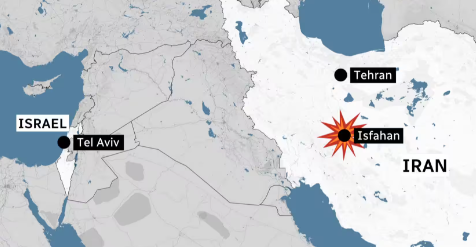Iran launched approximately 200 ballistic missiles at Israel on Tuesday in a significant escalation following Israeli military actions against Iran-backed Hezbollah in Lebanon. The missile strike, the second of its kind this year, targeted multiple locations across Israel, including central and southern regions. Although Israel’s defense systems intercepted many of the missiles, the attack has raised the prospect of broader conflict in the region.

The Israeli military has signaled plans for retaliation, though specific details about the response have not yet been disclosed. Major General Herzi Halevi of the Israel Defense Forces (IDF) stated, “We will choose when to collect the price and prove our precise and surprising attack capabilities.” U.S. officials have also expressed strong support for Israel, with National Security Advisor Jake Sullivan warning of “severe consequences” for Iran’s actions.
The missile strike follows Israel’s killing of Hezbollah leader Hassan Nasrallah in a recent raid in Lebanon, part of a wider campaign against the militant group, which is a key Iranian ally. In response, Iran’s Revolutionary Guard Corps claimed responsibility for the missile barrage, stating it was a direct retaliation for the assassination and other Israeli operations in Lebanon and Gaza. The attack also marked the first time Iran deployed its hypersonic Fattah missiles, with Iranian forces claiming that 90% of the missiles successfully hit their targets.
While no casualties were reported in Israel from the missile strike, a Palestinian man was killed in the West Bank, and two others sustained minor injuries from shrapnel. The assault also coincided with a shooting incident in Jaffa, where six Israelis were killed shortly before the missile barrage began. Israeli authorities have neutralized the two gunmen responsible for the shooting.
In Washington, President Joe Biden affirmed U.S. commitment to Israel’s defense and authorized the military to assist in intercepting Iranian missiles. U.S. Navy warships in the Mediterranean launched interceptors to help block missiles heading for Israeli territory. Jordan allowed U.S. forces to use its airspace to aid in missile defense efforts.
Iran, meanwhile, canceled all flights across the country until Wednesday morning as it braced for possible Israeli retaliation. Tehran warned that any further Israeli response would prompt a “more crushing and ruinous” reaction. Iranian President Masoud Pezeshkian emphasized that Iran is not seeking a broader conflict but will stand firm against Israeli provocations, stating, “This is just part of our capability.”
The situation has drawn international concern, with U.N. Secretary-General Antonio Guterres urging restraint and condemning the cycle of escalation. Oil prices surged by 5% following news of the attack, reflecting fears of a wider war between the two regional powers.
The missile strike comes amid heightened tensions between Israel and Hezbollah, with Israel conducting targeted raids into southern Lebanon in recent days. Although Israeli officials described these ground operations as limited, critics have raised concerns about the potential for a broader campaign, similar to Israel’s 1982 invasion of Lebanon.
As the region watches for Israel’s next move, the possibility of further escalation remains high, with both sides preparing for the next phase of the conflict.